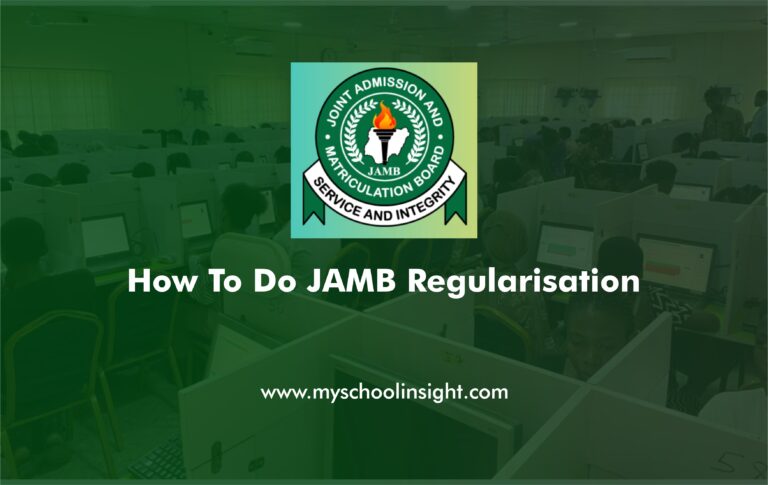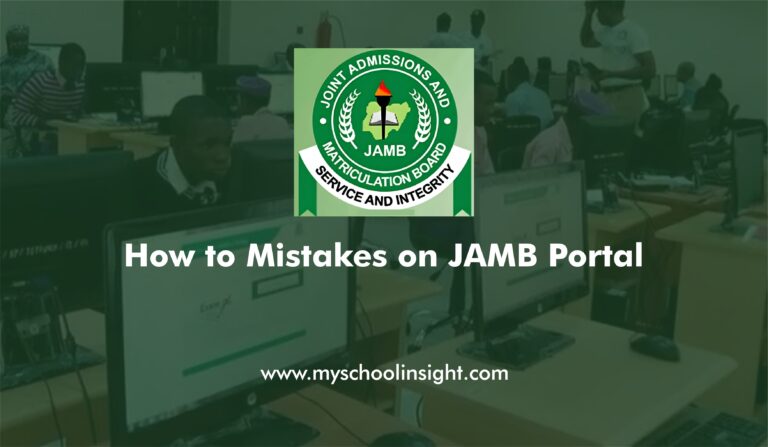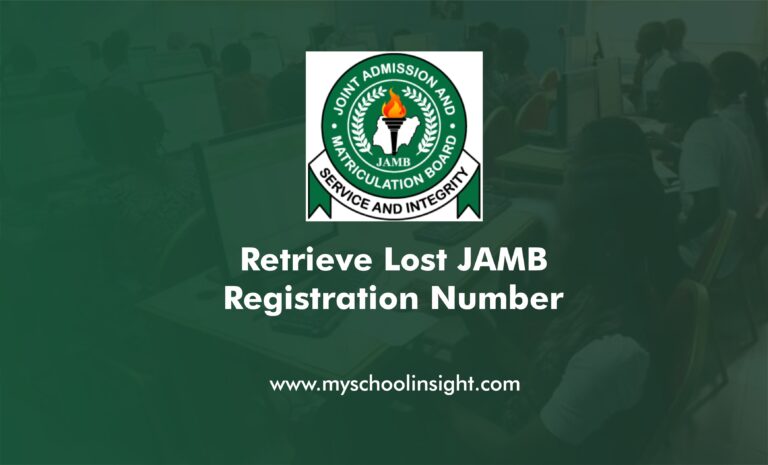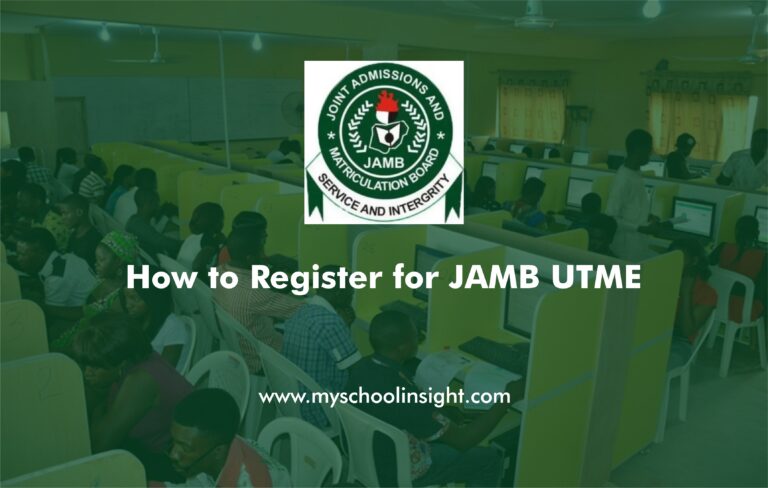How to Prepare for Post UTME Examinations
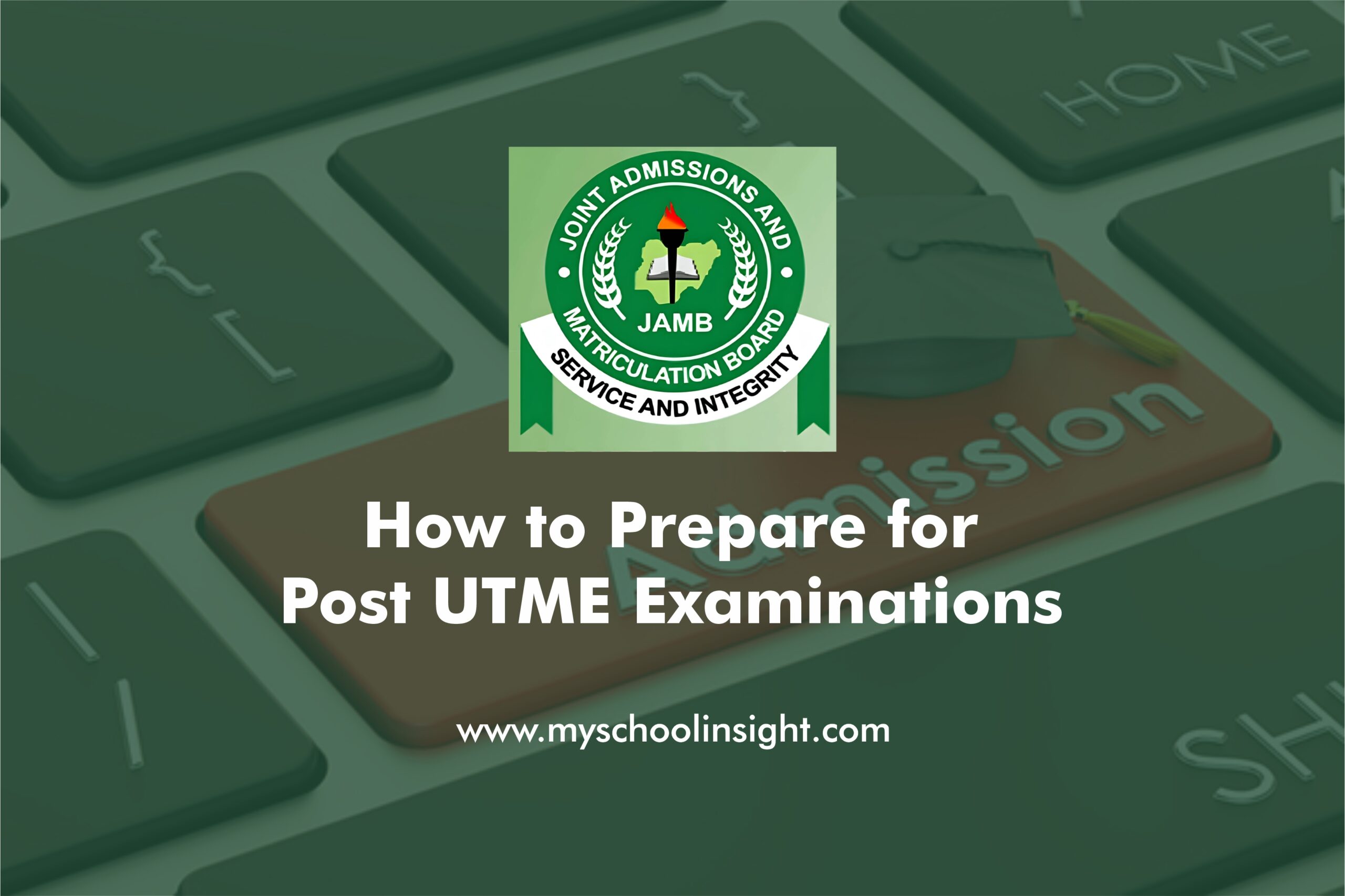
The Post UTME (Post-Universities Tertiary Matriculation Examination) is among the most serious ordeals that prospective university students in Nigeria have to pass. Once having passed the Unified Tertiary Matriculation Examination (UTME), the candidates that reach the cutoff marks are invited to attend the Post UTME screening. The test is one of the most important means in deciding whether or otherwise a candidate will successfully be admitted in the university of his choice. So, to pass this examination of great importance, the right preparation is required.
This article will teach you step-by-step on how to prepare the Post UTME exams best, so that when the exam day arrives, you will be ready to shine in your exams! Working out the exam format to adopting study strategies, to enhancing your mental health practice, this information-packed guide will provide you with whatever you should know to succeed in the Post UTME.
What is the Post UTME Examination?
The Post UTME is an examination organized by Nigerian universities as part of their admission process. After candidates write the UTME, which is a national exam managed by the Joint Admissions and Matriculation Board (JAMB), the universities use the Post UTME as an additional screening mechanism to assess the academic abilities and preparedness of candidates. This exam usually tests a student’s knowledge in subjects relevant to their intended course of study.
The Post UTME screening process can vary depending on the university. Some universities focus on aptitude tests, while others may conduct oral interviews, written exams, or even group discussions. The purpose of the Post UTME is to assess a candidate’s readiness for university life and their grasp of academic subjects.
Understanding the Post UTME Exam Format
One of the first things to do when preparing for the Post UTME is to understand the specific format used by your preferred university. Universities across Nigeria might have varying requirements, and knowing these will significantly influence your study strategy.
Here’s a quick overview of the typical Post UTME exam formats:
- Computer-Based Test (CBT): Most Nigerian universities now use computer-based tests (CBT) to conduct their Post UTME exams. Candidates are required to sit at a computer terminal and answer questions via a digital interface.
- Paper-Based Test: Although less common now, some universities may still opt for paper-based exams. Here, you will fill in an answer sheet or bubble form.
- Oral Interview: In addition to written exams, some universities may hold oral interviews as part of their screening process, especially for courses that require communication skills like Law, Theater Arts, or Media Studies.
- Aptitude Tests: These are designed to assess the cognitive abilities and problem-solving skills of candidates, often testing critical thinking and numerical reasoning.
Knowing what to expect is crucial in determining how to focus your preparation efforts. For example, if you’re taking a CBT exam, getting comfortable with digital exam platforms through practice tests is key.
Step 1: Know the Post UTME Subjects and Syllabus
The Post UTME syllabus is typically based on the subjects that candidates took during the UTME. For instance, if you sat for Mathematics, English Language, Physics, Chemistry, or Biology in UTME, those subjects will be relevant in your Post UTME exam as well.
It’s important to start by reviewing the Post UTME syllabus for your university and course of study. Most universities release this information ahead of time. This will help you focus on relevant topics and avoid wasting time on material that is not part of the exam.
Key steps to follow:
- Review the UTME syllabus: The topics covered in the UTME exam are usually similar to what will appear in the Post UTME exam. Go through the syllabus to refresh your understanding of the core subjects.
- Check university guidelines: Some universities may have unique subject requirements or specializations. Make sure to check if there are any particular sections of your subject syllabus that they focus on more.
Step 2: Create a Detailed and Realistic Study Plan
A study plan is a critical tool in your preparation for the Post UTME. Without one, it is easy to lose track of what to study, and you may not cover all the necessary topics. A well-organized study plan ensures that you stay on track, manage your time efficiently, and ultimately, improve your chances of success.
How to create an effective Post UTME study plan:
- Set clear goals: What do you want to accomplish each day or week? For example, you might want to cover one full subject or complete a certain number of practice questions.
- Allocate time wisely: Break your study time into blocks of 1–2 hours, with short breaks in between to avoid burnout. Focus on studying 2–3 subjects a day.
- Prioritize difficult subjects: If you find certain subjects challenging, allocate more time to those. Don’t wait until the last minute to tackle difficult topics.
- Review regularly: Dedicate a day each week to review what you’ve studied, and reinforce weak areas.
- Stay flexible: Life happens! If something unexpected comes up, adjust your plan accordingly rather than abandoning it altogether.
Step 3: Make Use of Past Post UTME Questions
One of the most effective strategies for preparing for Post UTME is practicing past questions from previous years. Universities often recycle certain questions or patterns, so being familiar with how questions are structured can give you a huge advantage.
Why practicing past questions is important:
- Familiarizes you with question patterns: Post UTME questions tend to follow certain structures or themes. By solving past questions, you become familiar with the typical question types, increasing your chances of answering them correctly.
- Improves time management: The more you practice under timed conditions, the better you get at managing time during the exam.
- Builds confidence: Completing past questions successfully boosts your confidence. You’ll feel more prepared and less anxious on exam day.
Where to Find Past Questions:
- Official university websites: Some universities publish past questions or samples on their official websites.
- Student forums: Platforms like JAMB websites, student WhatsApp groups, or online forums often share past questions.
- Books and study materials: Many educational publishers sell collections of Post UTME past questions organized by university or course.
Step 4: Focus on Speed and Accuracy
The Post UTME exam is often timed, which means that you have to work under time pressure. As such, a key aspect of preparation is to improve both speed and accuracy.
How to improve speed and accuracy:
- Practice timed mock exams: Setting a timer when solving practice questions will help you simulate real exam conditions and improve your speed.
- Master time-saving techniques: Learn shortcuts and methods for answering questions more quickly, especially in subjects like Mathematics and Physics.
- Prioritize easier questions: Don’t waste too much time on difficult questions; skip them and come back later if time permits.
The goal is not just to answer quickly, but also to answer correctly. Focus on eliminating the most obvious mistakes, such as misreading questions or rushing through answers.
Step 5: Strengthen Weak Areas
We all have subjects or topics that are more difficult than others. Identifying your weak areas early on allows you to spend more time on them before the exam.
How to tackle weak areas:
- Assess your weaknesses: After practicing some past questions, identify which topics you are struggling with.
- Get help: Reach out to classmates, friends, or tutors who are good at the subjects you’re weak in.
- Use online resources: Platforms like YouTube, online courses, or educational apps provide tutorials on a wide range of subjects.
- Work on one topic at a time: Break down complex topics into smaller sections and focus on understanding each part.
Step 6: Look After Your Mental and Physical Health
While focusing on academics is crucial, it’s equally important to take care of your physical and mental health during your preparation. Stress, fatigue, and burnout can severely affect your performance.
Tips for maintaining health during Post UTME preparation:
- Sleep well: Lack of sleep negatively impacts memory, focus, and problem-solving skills. Aim for 7-8 hours of sleep each night.
- Eat healthy foods: A nutritious diet enhances brain function. Include foods rich in protein, fiber, and vitamins to boost your energy levels.
- Exercise: Regular physical activity can relieve stress and improve concentration.
- Manage stress: Practice stress-relieving techniques like deep breathing, yoga, or meditation.
Step 7: Stay Updated with Important Information
Staying informed about the Post UTME exam dates, changes in exam centers, and other important details can help you avoid last-minute surprises.
How to stay updated:
- Regularly check the university’s official website or social media pages for announcements.
- Join student groups or forums that discuss Post UTME updates.
- Set up notifications for any news related to Post UTME.
Step 8: Stay Positive and Confident
Maintaining a positive mindset is crucial to your performance in the Post UTME exam. Confidence can make all the difference, especially when you’re faced with time pressure or difficult questions. Believing in your preparation and focusing on the progress you’ve made can help you stay calm and collected on exam day.
How to stay positive and confident:
- Visualize success: Picture yourself calmly answering questions and finishing the exam on time. Positive visualization helps in reducing anxiety and boosts your confidence.
- Avoid overloading yourself: Don’t cram the night before the exam. Instead, focus on reviewing key concepts and relaxing your mind.
- Keep a positive environment: Surround yourself with supportive people who encourage you to keep going and stay confident.
Affirmations are also a great tool to foster a positive mindset. Simple self-affirmations like “I am prepared,” or “I am capable of succeeding,” can reinforce your belief in yourself. When you feel uncertain, repeat these affirmations to remind yourself that you’ve put in the work and you’re ready for success.
Step 9: Time Management on the Day of the Exam
Good time management during the actual Post UTME exam is essential for maximizing your performance. The time constraints in the exam can cause anxiety, but if you manage your time well, you’ll be able to finish all sections with accuracy.
Effective time management tips:
- Read through all the questions first: This helps you understand the range of topics covered and allows you to answer questions that you feel confident about first.
- Don’t dwell too long on one question: If you’re stuck, move on to the next one and come back later if you have time.
- Monitor the clock: Keep an eye on the time throughout the exam to ensure you’re not spending too much time on any one section. Set mini-deadlines for yourself (e.g., “I’ll spend 10 minutes on this question and move on”).
- Save time for review: Leave a few minutes at the end of the exam to go over your answers and check for errors.
Step 10: Practice Self-Care During Your Preparation Period
It’s easy to get overwhelmed by the volume of study material, but it’s essential to take care of your physical and emotional well-being during the Post UTME preparation period. Overworking yourself can lead to burnout, so finding a balance is crucial.
Self-care tips for the preparation period:
- Exercise regularly: Physical activity improves mood, reduces anxiety, and increases energy levels. Even a 20-minute walk each day can make a difference.
- Eat well: A balanced diet rich in fruits, vegetables, and lean proteins will support brain function and keep your energy up.
- Take breaks: After every study session, take short breaks to rest and recharge. Overloading your brain without breaks will lead to fatigue and reduced productivity.
- Stay hydrated: Drink plenty of water to keep your brain functioning at its best.
Remember, the Post UTME is just one step in the larger journey towards your university education, so take care of yourself to avoid stress.
Step 11: Leverage Technology and Online Resources
In today’s world, technology can be a great ally in Post UTME preparation. Online platforms, apps, and websites offer a wealth of resources that can enhance your study process.
Here are some digital tools and resources to enhance your preparation:
- Online Past Questions Platforms: Many websites and mobile apps offer past Post UTME questions that you can access for free or for a small fee. These platforms might also have timed tests and other helpful features.
- YouTube: There are many educational channels that provide tutorials on difficult subjects and topics. From Math problem-solving to language skills, YouTube offers countless lessons.
- Study Apps: Apps like Quizlet or Anki allow you to create flashcards for quick revision. Apps like Khan Academy and Coursera offer detailed courses on a variety of subjects.
- Online Tutoring: If you’re struggling with certain subjects, consider hiring an online tutor. Websites like Preply or Tutor.com can connect you with experts in any field.
Step 12: Take Mock Exams to Simulate Real Conditions
Taking mock exams is one of the most effective ways to test your readiness for the Post UTME. Mock exams simulate the actual test conditions, helping you to build the confidence needed to perform well.
Why Mock Exams Matter:
- Boosts exam-day confidence: By practicing under timed conditions, you’ll be able to get a feel for the pace and structure of the real exam.
- Identifies weak points: Mock exams can highlight areas where you need more revision or practice.
- Improves focus: Simulating real exam conditions can help you learn how to stay focused for the duration of the test.
You can find mock exam papers on most educational platforms or even ask your school or tutor to provide them. It’s important to take at least two or three mock exams during your preparation period to measure your progress.
Step 13: Know What to Bring on Exam Day
The last thing you want on the day of your Post UTME is to be caught unprepared. Knowing exactly what to bring to the exam center is essential for ensuring that you don’t miss anything crucial.
Essential items to bring to the exam center:
- Admit card: This is a must-have. Ensure that you download or print the Post UTME admit card well in advance.
- Valid ID: Most institutions require a government-issued ID or student ID for identification purposes.
- Writing materials: Bring the required pens, pencils, erasers, and other stationery specified by your university.
- Calculator: If your exam involves math or science subjects, ensure you bring a scientific calculator (if allowed).
- Face mask: In the context of ongoing health precautions, ensure you bring a face mask, hand sanitizer, and follow any COVID-19 guidelines set by the university.
Arriving early at the exam center is also essential to avoid any unnecessary stress. Aim to get there at least 30 minutes before the exam starts.
Step 14: Stay Calm During the Exam
Once you’re seated and the exam begins, it’s easy to feel overwhelmed by the pressure of performing well. However, staying calm during the exam is critical for thinking clearly and making thoughtful decisions.
How to stay calm during the Post UTME exam:
- Breathe deeply: If you start feeling anxious, take a few slow, deep breaths to calm your nerves. This will help clear your mind.
- Focus on one question at a time: Don’t stress over the entire exam. Focus only on the question at hand, and approach it methodically.
- Use positive self-talk: Remind yourself that you are prepared and capable. Keep reinforcing this belief in your mind.
Conclusion: Achieving Success in the Post UTME Examination
Post UTME is a key achievement in your academics. You can fly with colors with the right preparation and thinking. Beginning to know how the exam is formatted, having an organized course of study, training with some past questions, keeping fit, and time management are all things that are going to put you at the doorway to success.
Keep in mind that it is important to work hard. Books are not shoes and review last minute fitment before the exam period fails to help. Have confidence in what you have prepared, and maintain a positive attitude to the day of the test.

